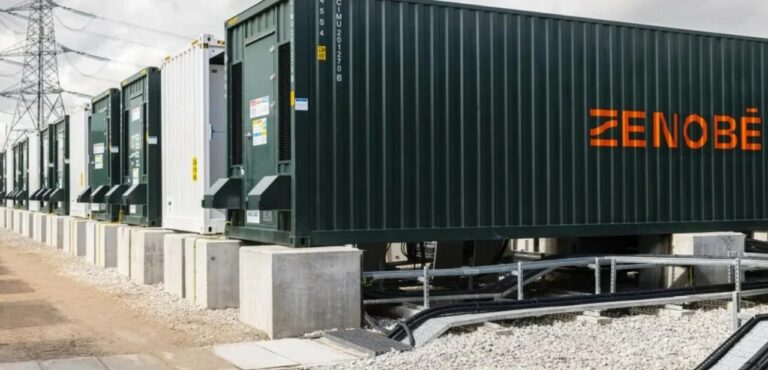A coalition of battery energy storage developers says skipping restrictions will “hold back investment and drive up consumer bills.”
In a letter to the UK government and the ESO before it becomes the National Energy System Operator (NESO), developers including Field, Harmony Energy Zenobē and Eelpower say that ESO is consistently underusing (“skipping”) batteries in its attempts to deal with with the energy oversupply.
Even if batteries are the cheapest and fastest way to meet the demands of the UK electricity grid, the ESO prefers other options: if there is too much wind energy and the system cannot transport it elsewhere, the simplest options are turning off wind energy. turbines or store the surplus in batteries. The latter is often cheaper as it avoids the ESO having to pay wind farm operators to switch off and potentially pay for switching on gas-fired power stations in another area.
Data collected by battery storage developers shows that some battery locations are skipped 90% of the time during limited periods. According to the letter, the consequences of this are that “consumers pay more, clean renewable energy is wasted and fossil fuels are generated instead.”
By solving the problem of bypassing restrictions, the coalition argues, the government will reduce consumer bills and give investors the confidence to invest in the UK’s energy transition.
In 2021, National Grid ESO’s Modeled Constraint Costs Network Options Assessment (NOA) 2020/21 paper suggested that constraint costs to consumers could reach £2.5 billion per year over the next ten years.
The letter focuses in particular on the potential for private investment that government legislation could provide. Zenobē founder James Basden said: “Solving this problem won’t require major new investment or infrastructure. With more transparency and involvement in the industry we can solve this quickly. The government has the opportunity to reduce bills and emissions by ensuring that grid-scale batteries are used appropriately and that the market is fit for purpose.
“As a coalition, we are prepared to work with the Government, the ESO and Ofgem to urgently resolve this long-standing problem and reduce the persistently high levels of restriction skipping that we are seeing.”
Peter Kavanagh, CEO of Harmony Energy, added: “Urgent action against the balancing mechanism is required if we are to achieve a sustainable future for Britain. If we get this right, we can unlock investment and create value for consumers across the UK.”
This article was originally published on our sister site, Current±.


